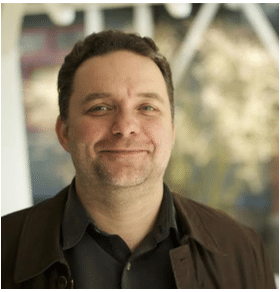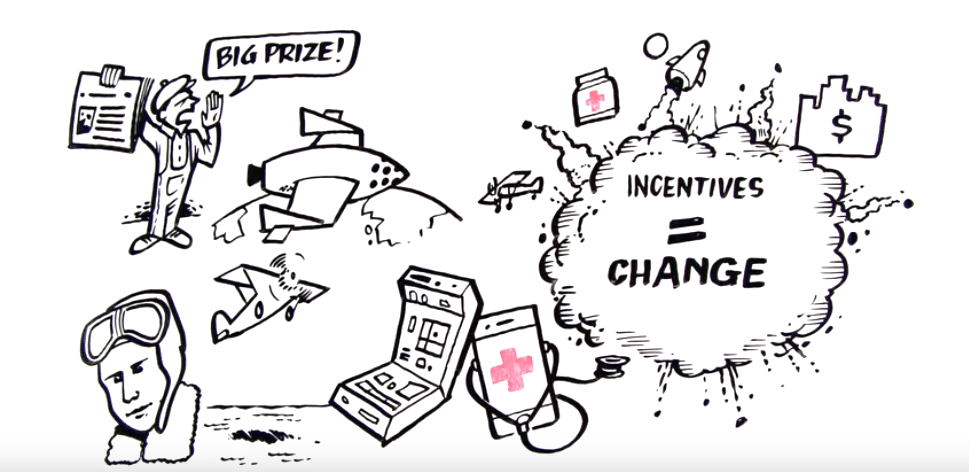Christian Cotichini has over 20 years of experience personally leading startup and high growth technology companies. He is also a successful angel investor as well as a serial entrepreneur.
He founded Absolute Software, a leader in computer security and asset management that went public. After Absolute, he founded MAKE Technologies which was sold to Dell Computers in early 2012. While remaining on the Board of MAKE, Christian left day-to-day activities to join co-founder Shannon Susko and launch Subserveo, a SaaS company that targeted the post 2008 compliance and regulatory challenges faced by the banking sector. Subserveo was acquired after 18 months.
 In 2013, Christian was a co-founder HeroX where he is CEO. HeroX, an XPrize spin-off, empowers anyone to achieve breakthroughs in their community, their company, or even on a global scale, through creating online challenges that attract the attention and involvement of some of the world’s brightest thinkers around the world to help resolve your issues.
In 2013, Christian was a co-founder HeroX where he is CEO. HeroX, an XPrize spin-off, empowers anyone to achieve breakthroughs in their community, their company, or even on a global scale, through creating online challenges that attract the attention and involvement of some of the world’s brightest thinkers around the world to help resolve your issues.
Christian shared some time with Crowdsourcing Week for us to ask him a few questions.
Q. Can you explain in a few words what HeroX is?
HeroX is a ‘social-network’ that allows organizations to create and engage with their own crowd. HeroX provides the best way for organizations to perform work outside of their organizational boundary, making crowdsourcing ten times easier.
Q. Given that crowdsourcing is an amazing way for established, successful business owners to solve their biggest challenges and spark additional growth, why do you think it’s so hard to get that kind of innovation to occur inside a company?
Companies are good at certain forms of innovation but not others. Most big innovations begin as crazy ideas. This is incompatible with the de-risking nature inherent to stable organizations – their “immune system” prevents bad or half-baked ideas from receiving resources.
Crowdsourcing is complementary to these strengths. By using a co-innovation model a company gets the best of both worlds: disciplined execution internally, complemented by open innovation through engaging with the crowd.
Q. HeroX has been a virtual company from the start and currently has 14 staffers in eight cities. What continue to be the best features of this type of set up?
Although a physical office makes sense for many, an Internet platform like HeroX has no geographical constraints. Plus, requiring staff to live within commuting distance of a single location limits your recruiting to 1/1000th of the global talent pool.
Running a distributed company requires a total commitment to the model, we could probably write a book with what we’ve learned. Developing self-managing people is key. At HeroX, we’ve optimized our approach with the following:
Prioritize this:
| Minimize this:
|
Q. HeroX’s recently launched Visioneering program appears to be crowdsourcing how to design competitions for XPRIZE to provide some of its clients with ways to crowdsource solutions to major global issues. How long can a chain be before you think there could be too many links?
As most ‘digital natives’ (the so called Millenials and younger generation) intuitively know, we now live in a world where open two-way collaboration is the norm. As a non-profit foundation, XPRIZE is embracing this and opening up its 20-year process. By allowing anyone to participate, they are tapping into the collective intelligence to tackle the world’s grand challenges.
The XPRIZE Visioneer Challenge is an example of parallel innovation. They’re tackling 5 Grand Challenge areas in parallel: Off-Grid Energy Access, Feeding the Next Billion, Lifting Farmers out of Poverty, Natural Disaster Prediction, and Saving Coral Reefs.
So far, over 2,700 innovators have signed up to tackle them. The best 15 ideas will be brought into phase 2, a hackathon style incubation phase where they’ll be developed into fundable XPRIZEs. The best of these will present on stage at the 2018 Visioneering Summit in front of billions of dollars of potential funding.
Q. You are a speaker at CSW’s Global Conference in Washington DC in October. What will you most want to impress upon delegates?
The era of ‘Core+Crowd’ is beginning. People have been talking about ‘the future of work’ for years. Most talks lean on motherhood-and-apple-pie concepts and little seems to have changed.
But, the era of the traditional, ‘closed’ organizational model is almost over, and the evidence is everywhere, hiding in plain sight. My goal is to move beyond with real-world insights, examples and actionable ‘how-to’ advice to help delegates move their organizations into this new world.
Q. As an angel investor, what are the key factors you look for in startups?
Successful angel investing is all about leveraging your personal strengths, there is no secret formula. Invest using what you know.
Nearly all early startups’ strategies are wrong. Success depends on their ability to discover the right way to deliver value, scale, and make money. Looks for a founding team that’s passionate, committed and willing to adapt to what they learn. I look for startups that fit into an inevitable future.
The differences between Silicon Valley startups and outside startups have never been bigger. Silicon Valley is ruled by a fail-fast model, driven by the powerful incubators. Many founders go through two or three quick failures before getting a hit and Silicon Valley angels benefit from high volume or exclusive access to the best deals. These are not repeatable outside of Silicon Valley where a measured, iterative approach works better.
Q. You describe your education as the School Of Hard Knocks. How much do you think entrepreneurship can be taught and how much of it is down to inherent instinct?
I’ve gotten to know hundreds of successful entrepreneurs and also coach/mentor entrepreneurs. From my experience, one thing is certain: there are many paths to success. I believe that entrepreneurs are created by a blend of nature and nurture. It boils down to matching your intrinsic strengths and weaknesses with the right personal and professional development.
The most universal trait I’ve learned is grit, the mix of passion and perseverance. Entrepreneurs have to have ‘batteries included’. Some, like me, developed grit from their childhood: bullying, ADD, dyslexia, a dysfunctional childhood, etc. Others get it from being purpose-driven. There are many ways, but without grit it’s very hard to keep on striving on your business when a reasonable person would give up.
Thank you Christian for sharing your insights with us.
Christian Cotichini is a speaker at our CSW Global 2018 conference in Washington D.C running October 24-28. His session at the iconic Carnegie Institution of Science is titled “Crowdsourcing 2.0, The Third Form of Labor.” Tickets are available now with some time sensitive offers on both individual registrations and Team Passes.




0 Comments